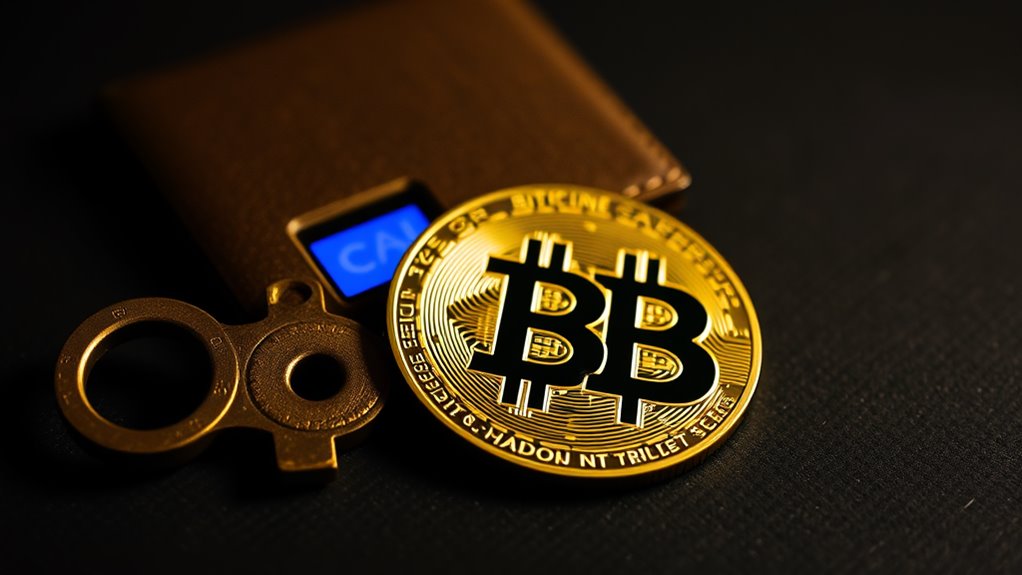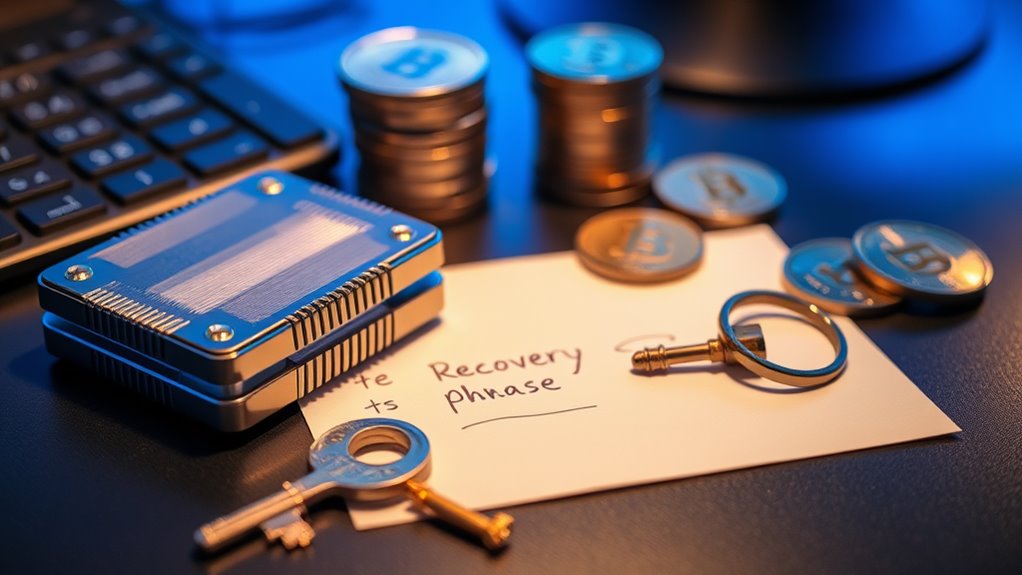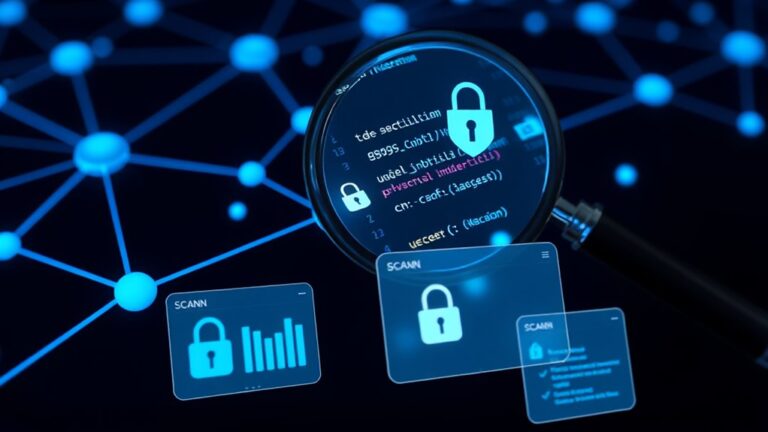Understanding Private Keys in Cryptocurrency
Note: This post may contain affiliate links, and we may earn a commission (with No additional cost for you) if you purchase via our link. See our disclosure for more info. The gold and crypto world is constantly changing. This is not financial, investment, legal, or professional advice. So, please verify the information on the gold and cryptocurrency provider’s websites.
Private keys are the critical pieces of your crypto puzzle. Think of them as the master key to your digital fortune. Lose one? Wave goodbye to your funds—permanent style. Sharing is a no-go; it's like giving someone your house keys and asking for trouble. They safeguard your transactions like a bouncer at a club. So, take care of them. Want to know how to keep them safe? There's more to the story.

Private keys are like the secret sauce of cryptocurrency. Without them, users are just lost souls in a digital wasteland. A private key is a secret alphanumeric code that opens the door to your crypto fortune. It's the key to your vault, giving you exclusive control over your funds. Want to spend, withdraw, or transfer your assets? You better have that key handy.
Private keys are the ultimate gateway to your crypto wealth, granting you total control over your digital assets.
It's derived from a public key using a one-way cryptographic process, which means your private key is supposed to be as secure as a vault in Fort Knox. The private key allows for self-custody of funds without reliance on third parties, providing true financial independence. Additionally, a secure crypto wallet is essential for managing both your private and public keys effectively.
But here's the kicker—if you lose that key, good luck getting your money back. It's gone. Poof! Just like that, your funds vanish into thin air, leaving you with nothing but regret. And let's be real; there are no “oops, I lost my key” recovery options in the crypto world. You've got to store that bad boy offline, like in a hardware wallet, to avoid the hackers lurking in the shadows.
Now, sharing your private key? Don't even think about it. It's basically handing someone the keys to your house—and your entire bank account. Just imagine saying, “Here, take everything I own!” Not a smart move. Cold storage methods like metal backups or paper wallets are your best friends when it comes to protecting your assets. Hardware wallets offer enhanced security by conducting transaction signing internally without exposing your private keys to potentially compromised devices.
Private keys don't just secure your crypto; they create digital signatures that verify transactions on the blockchain. It's like signing your name on a dotted line, except it's all done in the digital domain.
In decentralized systems, they're essential for self-custody, allowing users to manage their funds without meddling intermediaries.
Frequently Asked Questions
What Happens if I Lose My Private Key?
If someone loses their private key, it's game over. They can kiss their crypto goodbye.
No backup? Too bad. Those coins are stuck on the blockchain, forever locked away.
And guess what? There's no bank to save the day.
Human error, phishing, hardware fails—plenty of ways to mess it up.
Recovery options? Slim to none.
In short, losing that key means a one-way ticket to financial oblivion. Ouch!
Can I Recover a Private Key if Forgotten?
So, forgot your private key? Good luck with that.
Recovery? Not really a thing. You might have a seed phrase, but if that's gone too, it's game over.
Some fancy wallets offer social recovery—if you've got trustworthy friends. Otherwise, you're stuck.
Remember those folks who lost thousands? Yeah, that could be you. No safety net here.
Just a reminder: once it's lost, it's lost. Forever. Ouch.
Are Private Keys the Same for All Cryptocurrencies?
Nope, private keys aren't the same for all cryptocurrencies. Each one is unique, like a snowflake—if snowflakes could steal your money.
A Bitcoin private key won't work for Ethereum, and good luck trying to mix them up. They're generated independently, and losing one? Say goodbye to your funds.
How Do I Securely Store My Private Key?
Storing a private key securely? It's like guarding a treasure chest.
Hardware wallets are your best bet—think of them as the Fort Knox for your keys.
Paper wallets? Sure, if you love the risk of fire or water damage.
Then there are encrypted USB drives. Great, until you lose it.
And let's not forget third-party vaults; they're safe, but trusting them is like handing your diary to your nosy sibling.
Choose wisely!
Can Someone Steal My Cryptocurrency Using My Private Key?
Absolutely, someone can steal your cryptocurrency if they get hold of your private key.
It's like handing them the keys to your house. They can drain your wallet in seconds.
In 2024 alone, losses hit a staggering $239 million from breaches. Phishing, malware, and just plain poor storage make it all too easy.












One Comment